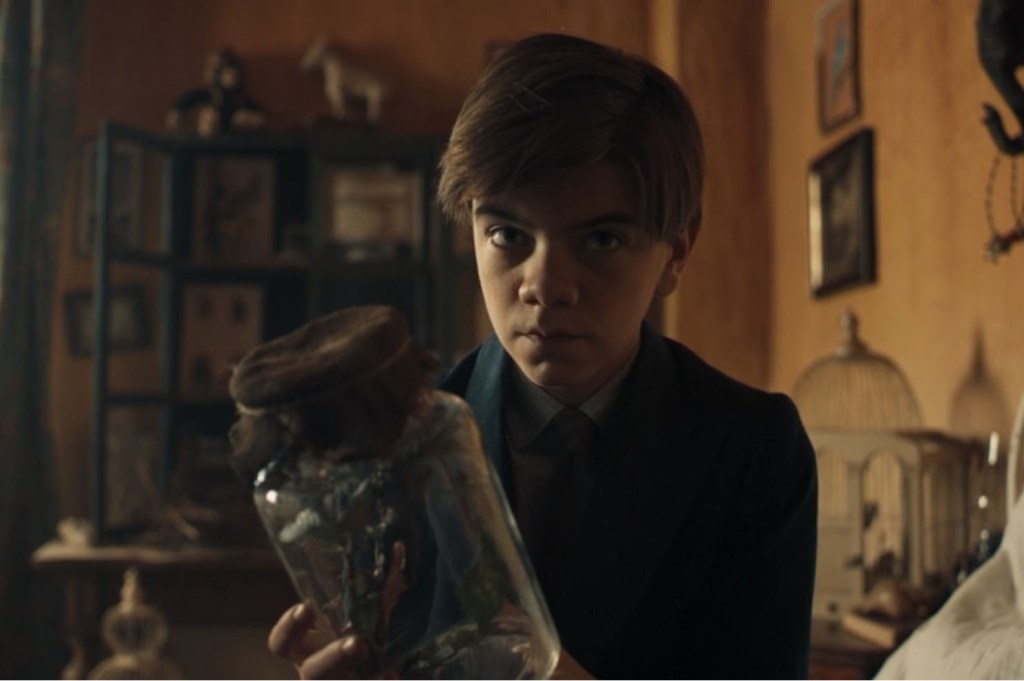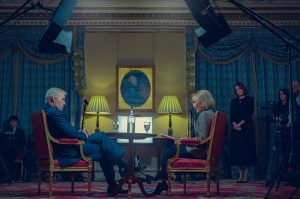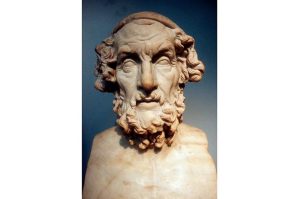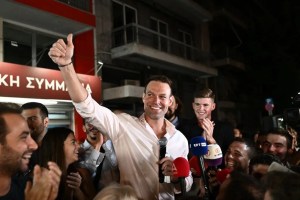There’s a wonderful moment in the third television series of The Durrells in Corfu when Louisa, the mother of Gerald and Lawrence Durrell, has been reading a badly-spelled essay by Gerald, her youngest son. She turns to him with proud love in her eyes and says ‘Larry writes to dazzle. You write to entertain.’
Screenwriter Simon Nye could not have better expressed the different literary skills of the two brothers. Lawrence, in his mid-twenties in the 1930s, was destined to become a leading poet of his generation and then, as he put it, to ‘stumble into prose’ with the ground-breaking Alexandria Quartet (1957-60). Gerald, after the family’s return from Corfu to England on the eve of the World War Two, began his lifelong career of breeding endangered species in captivity. His books, describing his adventures collecting animals throughout the world, were money-spinners to finance his next expedition.
But both were superb wordsmiths, and their books are page-turners. We want to know what’s happening to Justine in Alexandria. We want to know how Gerry manages to track down the elusive aye-aye. Each excelled in his chosen sphere — Larry to ‘dazzle’ with his impressive, exotic, poetry and scintillating novels, Gerry to ‘entertain’ with his endearing and deeply-felt, technicolour snapshots of the jungle. Both were engaged in the search for some kind of truth, and it was in Corfu that it all began. Both said unequivocally that they were ‘born in Corfu’, and both referred to living there as ‘like being allowed back into Paradise’.
Almost all their life’s work was conceived here, where I am writing this: on the Ionian island of Corfu. Gerald, at the age of 12, saw his future as ‘a voyage around the world collecting animals’, while Larry’s notebook from this time shows him mapping out all his work, from The Black Book onwards, through the Alexandria Quartet and The Revolt of Aphrodite towards The Avignon Quintet.
But there is a third, salutary presence, an eminence grise, in the equation: Theodore Stephanides, the polymath scientist and man of letters, who became not only Gerry’s tutor but also Larry’s mentor and literary collaborator. ‘I would confer two gifts on every child,’ Gerald once wrote, ‘the enchanted childhood I had on the island of Corfu, and to be guided and befriended by Theodore Stephanides’. Theodore opened Gerry’s eyes to the wonders of the natural world, and he opened Larry’s eyes to the whole gamut of the Greek spirit. Yorgos Karamihos conveys Theodore superbly in Nye’s screen portrait, alongside the charming and remarkable young actor Milo Parker, as Gerry.
As a ‘Durrellian’ living and working in Corfu I am often asked, ‘Are you not furious at the misrepresentations in the television series?’
To which I reply, ‘No, Simon Nye is doing an excellent professional job, which is to create an onscreen page-turner. And he is helped by the fact that Gerry’s account of those years, the raw material on which the series is based, is in itself a ‘misrepresentation’ of the actual events and characters. Nye can’t be held responsible for the way Gerry, back in 1956, manipulated his memories of those four years.’
Nye exploits the borderlands between fact and fiction. There are over-the-top moments, such as the widowed Louisa nearly marrying a gay Swede, but generally Nye is faithful to the spirit, and usually the letter, of Gerry’s Corfu Trilogy, of which My Family and Other Animals is the most renowned. It was Gerry who portrayed Theodore as a bachelor, when in fact Theodore’s daughter Alexia (today a good friend of mine) was his childhood playmate. It was Gerry who airbrushed out Larry’s wife Nancy and the fact that they lived quite separate from the rest of the family, at the ‘White House’ at Kalami. To have Larry living within the family, irascibly interrupting his compositions to scream at his brother for keeping scorpions in the match-box, was better copy than the reality. It’s a well-known fact that their sister, Margot, once exclaimed, ‘In this family you never know which is truth and which is fiction.’
Simon Nye has also used the creativity of film to elicit some striking images: the middle brother, Leslie, is usually considered a hapless, gun-toting misfit, but Nye shows him to be (as I think he was) a deeply caring, disturbed child who missed his dead father and was concerned for his mother’s security. And the (in the Corfu folk memory) deep affection between Louisa Durrell and the family driver, Spiros ‘Amerikanos’, is made explicit in a sensitive and considerate manner.
In his own book on Corfu, Prospero’s Cell (1945), Larry doesn’t mention Gerry. Maybe that’s why, 10 years later, Gerry altered the facts about Larry’s relationship with his family. Nevertheless, Larry regarded My Family and Other Animals as ‘rather truthful’. He recognised a fellow writer, and throughout his life he maintained an affectionate and devoted concern for Gerry, who I think he always regarded as his ‘baby brother’.
And there was rivalry. When in 1969 Larry published Spirit of Place, Gerry followed with his own Fillets of Plaice. When I asked Larry why he published with the upmarket Faber & Faber rather than a more popular imprint, he replied with delicious double entendre: ‘Penguins? I leave them to my brother!’
Larry even started Gerry’s literary career. In 1937, he and Nancy left Corfu for an eight-month stay in Paris, where they met Henry Miller and Anaïs Nin. Among other activities they edited a scurrilous magazine called The Booster. Here Larry published two pieces by the 12-year-old Gerry: a phantasmagoric insight into an operating theatre, and a poem entitled ‘Death’. The fact that Gerry seemed preoccupied with death is ironic, considering that his lifelong achievement was to save so many species from extinction.
The series also very effectively captures vignettes of Theodore’s mentoring, such as his beautifully evoked explanation of the mysterious ‘trapdoor spider’. In one episode, Gerry is resolutely sitting staring at a wall:
‘What’s Gerry doing?’
‘He’s staring at a wall.’
Family verdict? The boy is a fool. Whereupon Gerry then kindly explains that the wall is home to innumerable species of fauna and his silent vigil is, in itself, an encyclopaedia of experience.
Literature and science, the compulsion to write and the need to make sense of the world, all coincide in the brothers’ response to landscape and character, to the ‘spirit of place’ . It continues to engage the imagination in adventures that are psychological as well as poetic. Larry wrote of ‘islomania’ as a fascination with islands for those with an ‘affliction of spirit’. Gerry chose islands for most of his fieldwork because they offered a better chance of studying biodiversity, a branch of zoology that he pioneered. The two approaches — the spiritual and the scientific — are not far apart, especially when we consider the ‘biodiversity’ in Larry’s human jungle or the poetic visions which Gerry could put on paper.
In June 2019, the Durrell Library of Corfu will host a symposium, Islands of the Mind to honour the literary and scientific achievements of Gerald and Lawrence Durrell, Theodore Stephanides and other writers born in or fascinated by Corfu.


















